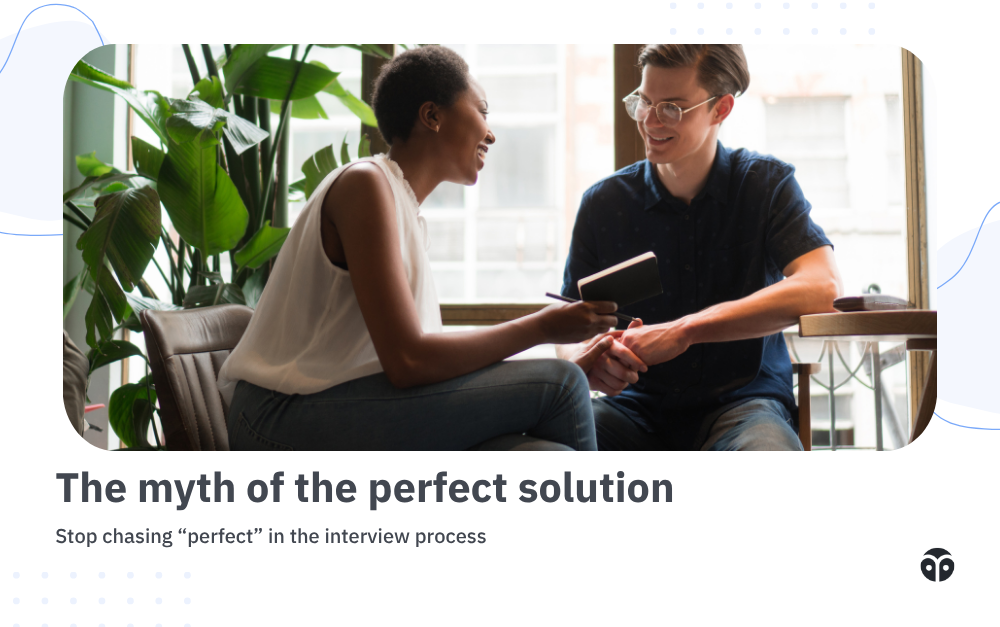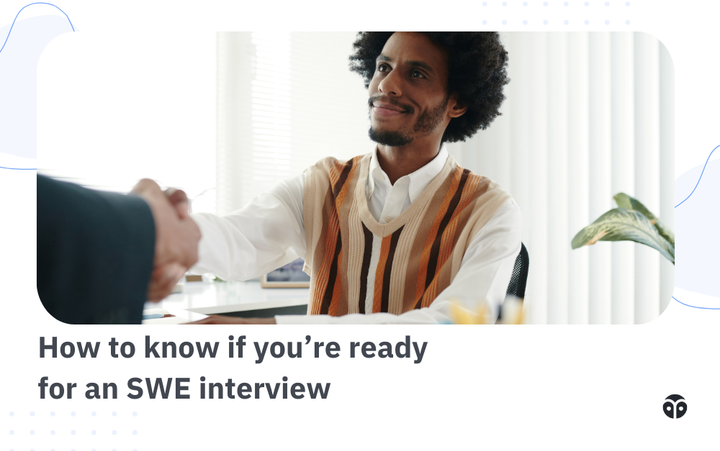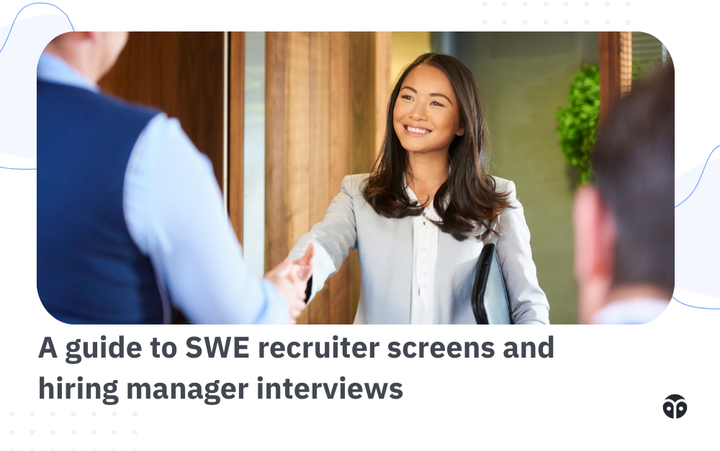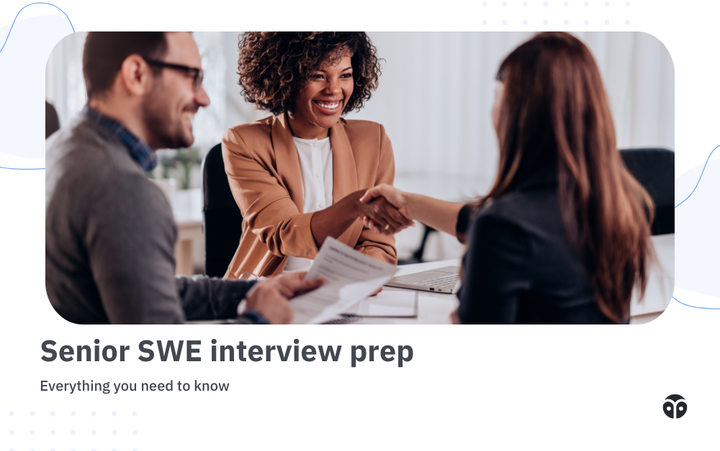The myth of the perfect solution in interviews
Most engineers over-focus on perfect solutions. What really stands out in interviews is clear thinking, steady progress, and good judgment.

Plenty of engineers walk out of interviews second-guessing themselves. Maybe the code wasn’t fast enough. Maybe they didn’t land on the cleanest solution. It’s easy to think the outcome hinged on technical perfection.
That belief doesn’t come from nowhere. Online platforms reward optimality. Some automated screens reject anything less. And in a competitive market, it’s natural to assume the goal is to be flawless.
But the interview process is assessing more than that. Strong candidates communicate clearly, explain tradeoffs, and work like collaborators.
Where the “perfect” mindset comes from
This way of thinking often starts early and gets reinforced along the way:
- Online assessments. Many still reward exact answers, reinforcing the idea that anything less than optimal is failure.
- Coding challenge culture. Leaderboards and efficiency scores build the habit of equating speed with skill.
- Market pressure. During slow hiring cycles, candidates often assume they need to be exceptional at every step, when in reality, the strongest signals come from clarity, not complexity.
The result is that engineers enter interviews hyper-focused on optimality, and when they don’t achieve it, they assume failure, even if they demonstrated strong reasoning along the way.
What interviewers are actually looking for
Expectations shift as you grow. At the mid-level, it’s about writing working code consistently. At the senior level,, correctness is table stakes and what matters is how you get there and how well you navigate ambiguity.
The traits interviewers actually highlight when they talk about strong candidates:
- Breaking down ambiguity into clear steps
- Narrating decisions and tradeoffs with precision
- Collaborating effectively under time pressure
We’ve seen plenty of candidates land offers with only a partial or near-optimal solution because they made their thinking visible and built trust throughout the conversation. We’ve also seen highly capable engineers pass over when they stayed silent, offering no insight into how they solve problems on a team.
A tale of two candidates
Imagine two engineers solving the same problem:
The silent optimizer works quietly, produces a fast and elegant solution—but shares little along the way. The interviewer sees the output, not the thinking behind it.
The collaborative explainer starts by clarifying the prompt. Offers a simple solution first, then improves it while explaining tradeoffs. Asks smart questions. Adjusts based on feedback.
Even if the second solution is less “perfect,” it tells a stronger story. And in most interviews, that’s the one that leads to an offer because it reflects how real engineering work gets done.
Why progress and clarity are stronger signals
In real engineering work, the “perfect” solution is rare. What matters is whether you can move a messy problem forward, bring others along in your reasoning, and deliver something reliable under constraints.
That’s exactly what interviewers are testing. Progress and clarity send stronger signals than elegance because:
- They reveal your process. A working but suboptimal solution shows how you approach problems, while a silent perfect one leaves interviewers guessing.
- They show adaptability. Real projects change scope constantly. Demonstrating how you’d start simple and improve iteratively mirrors real-world workflows.
- They build trust. Clear narration reassures interviewers that you’d be a dependable collaborator, not a black box.
Progress and clarity are the signals that map most directly to senior-level impact. If you don’t hit the optimal solution, don’t assume you’ve failed. Focus on how well you demonstrated your process, independence, and communication. That’s what interviewers will remember.
What to remember going into interviews
Interviews aren’t exams; they’re simulations of real engineering work.
Your goal isn’t to prove that you’re flawless. It’s to give interviewers confidence in how you think, how you collaborate, and how you move problems forward when the path isn’t obvious.
Progress and clarity consistently outweigh silent perfectionism. If you can internalize that shift, you’ll walk into your next interview ready to show not just that you can code, but that you can lead.
Get holistic interview prep with Formation
The Formation Fellowship gives mid-level and senior engineering job seekers everything they need to land their dream roles — including personalized skill brush-ups, resume help, unlimited mock interviews with experienced software engineers and hiring managers from top-tier tech companies, career and negotiation support, and more.
If you’re having trouble navigating your job search on your own, apply here and get unconditional support from a team of engineering mentors, technical recruiters, career coaches, and more.



